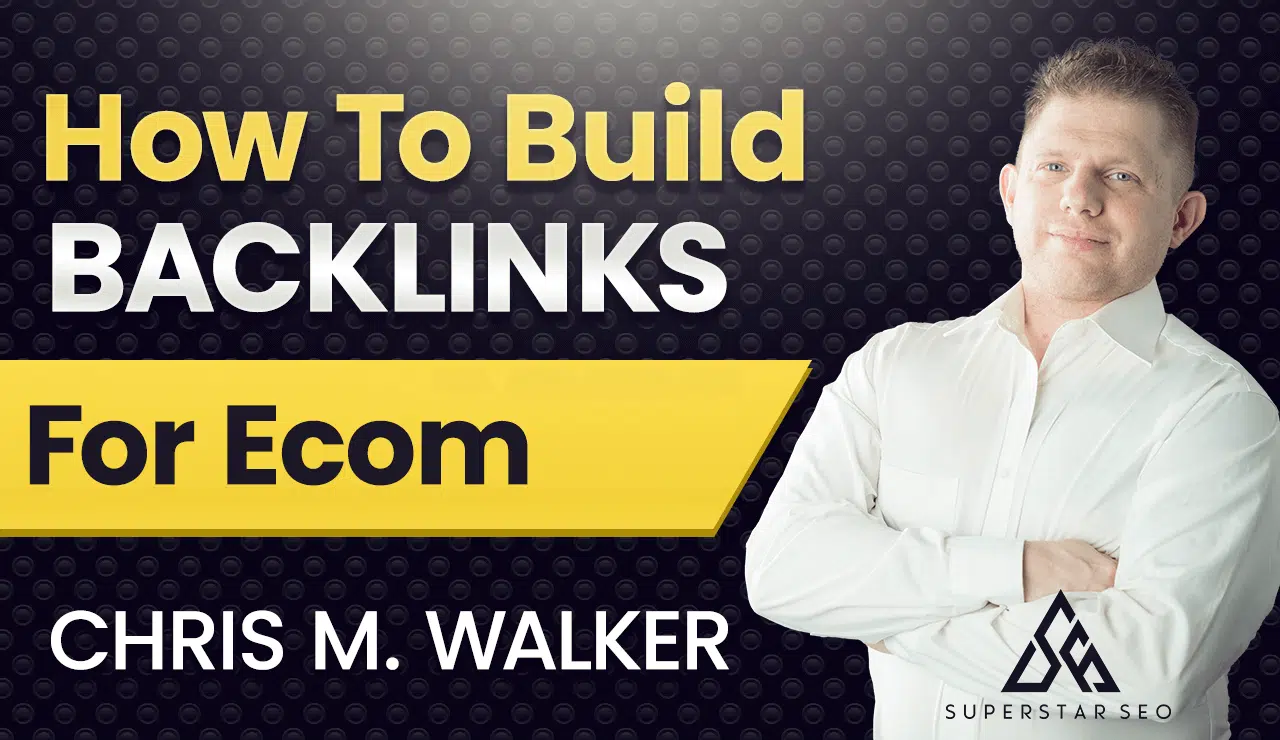When looking to strengthen or grow your backlinks for an eCommerce site, there are steps you can follow. It is essential to fully understand what an eCommerce site is and how SEO affects the buying and selling potential of your website. Knowing how to build backlinks for eCommerce and create digital connections to your site can grow your business organically by increasing the expertise and authoritativeness of your business. Use this as your guide to building backlinks for eCommerce SEO.
Summary:
- What is e-commerce
- How does SEO affect e-commerce
- How to build backlinks for e-commerce
- Superstar SEO’s guide for building backlinks for e-commerce SEO
What is e-commerce

If buying or selling has ever been something you have done online, you already know about e-commerce transactions. E-Commerce, or e-comm, is the name given to any buying or selling of goods happening online. Whether it is a business selling to another business (business b2b), a business is selling to a consumer (business to consumer b2c), or a consumer selling to a business (consumer to business), e-comm transactions are popular across the internet.
Such transactions may include selling a product, a service, software, or a subscription in an eCommerce store. Any time there is an online purchase or products or services, think e-commerce. Using all of the strategies we will be discussing, including building backlinks for eCommerce, will help your online store grow to success.
When using a website or online retailer to obtain goods or services, you are using an eCommerce site.
How does SEO affect e-commerce?

SEO services help to promote specific businesses over others based on targeted factors. Search engine servers, such as Google, have very detailed algorithms to rank businesses based on EAT (Expertise Authoritativeness Trustworthiness). The higher a business’s EAT, the higher up it is ranked in search engine results. Excellent SEO services use a variety of techniques to rank a business.
It is essential to understand there are two types of SEO: on-page and off-page. On-page SEO is anything that happens directly on the website pages. Off-page SEO consists of strategies such as link building, podcasts, social media, and blog posts. In this article, we will be focusing primarily on off-page SEO techniques for e-commerce.
Great off-page eCommerce SEO will utilize one or all of the following strategies:
-
Using specific LSI (Latent Semantic Indexing) keywords in the content
-
Using proper, separate product descriptions and titles
-
Using only the highest quality of content
-
Acquiring and using specific high-quality backlinks
Most e-comm sites are fluent with all of the techniques mentioned above but tend to overlook the acquisition and use of quality backlinks. Although this strategy can take some time, its benefits tend to be quick and highly effective.
Got a New Website? Check out How To Do SEO For a New Website
Online stores need just as much SEO as any other website to promote online sales and move products and services.
How to build backlinks for e-commerce?

Having great backlinks pointed to your site increases Google authority ranking and can cost a business less in pay-per-click services, but how do you build backlinks for e-comm sites? Here are some top strategies we recommend:
-
Use tools like SEMrush or Ahref- Search and find links with a high DR and high backlink count. Then, you can contact the company and ask them for the backlink.
-
Find Broken links and expired domains- you can create content that goes along with the broken link and use that to point back to your site.
-
Whenever possible, create Infographics around the product or services you are providing. These can be shared on various sites (many of which have high-ranking authority) and will point back to your site!
-
Use Social Media and influencers/bloggers to support your e-commerce store- Getting backlinks from those with high authority improves the traffic to your e-commerce store.
-
Use guest posts, case studies, and press releases- Reach out to companies and ask about a guest post or case study. This will link content on their pages back to your page.
-
Be a sponsor- Sponsor a local baseball team or charity group. Then, when they mention you on their pages, you get a backlink!
-
Blog! Blogging helps create the understanding that your business is the authority of your product or service.
Building quality backlinks may be somewhat time-consuming, but an e-commerce business will rapidly see the value in return when done correctly.
You May Also Like: SEO Marketing Strategy
Every online business and every eCommerce website need backlinks connecting related online retailers and websites, increasing authority.
Superstar SEO’s guide for building backlinks for e-commerce SEO
When looking for how to build backlinks for eCommerce while building up eCommerce SEO, some areas of off-page SEO are easier and less expensive than others. As a guide, we suggest starting with social media backlinks and blog posts as they are relatively inexpensive or free. If you can create infographics and other related content that will potentially be shared, get creating! This will provide you with the start of firm backlink building. Next, visit Ahrefs or Semrush. Look at your competition and see where they are succeeding in their backlinks. Find the broken links or expired domains. Next, reach out to companies related to yours and see if you can guest post. Continually blog and post articles pointing back to your site! These strategies will make your eCommerce business rank better organically.
Building quality backlinks for your e-comm store can take time and grow your business’ EAT in your area of expertise. Using eCommerce SEO strategies and organically building backlinks for your site will improve your search engine rankings, costing you less needed pay-per-click services. Content is key! The more content you have, the more backlinking abilities you can create. Be sure the content you are creating stays aligned with the eCommerce SEO strategies also mentioned in this article. Building backlinks on your e-commerce site increases the trust in your product or service as you become an authority in that area.





